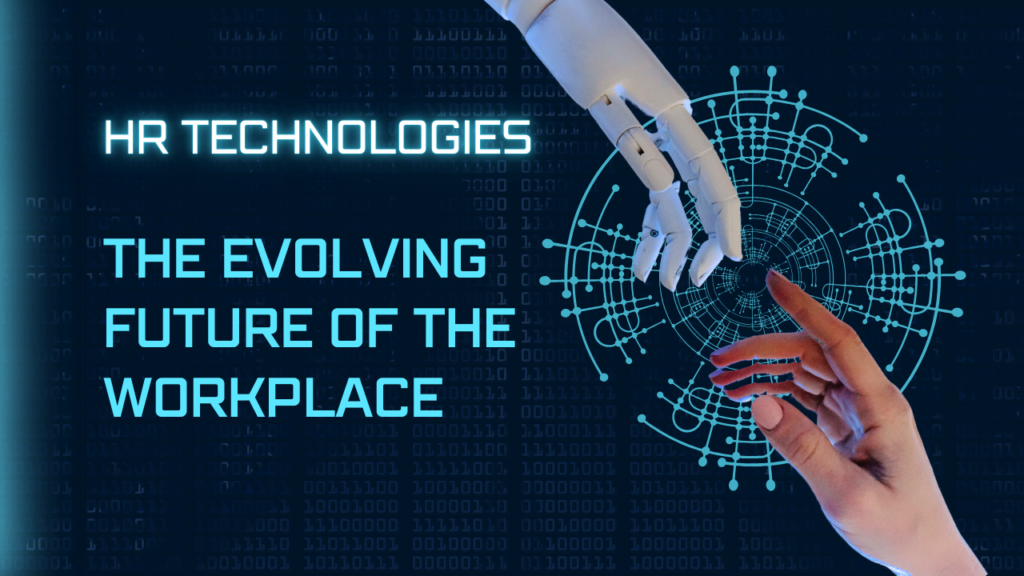Key HR Tech Trends 2024: The Evolving Future of the Workplace
Like every other sector, technology has made its way into the HR segment as well, sparking several changes along the way. Globally, the HR tech market was valued at a colossal USD 37.66 billion in 2023 and is projected to grow from USD 40.45 billion in 2024 to USD 81.84 billion by 2032. In India, the HR tech market is estimated to reach USD 38.36 billion by 2030.

Over the past few years, the business landscape has evolved rapidly, and the workplace culture has changed along with it. From an HR standpoint, recent years have been marked by significant fluctuations and unpredictability. After facing obstacles like the great resignation, quiet quitting, and an economic downturn, the HR field is gearing up for a positive shift in the business landscape. A report by TeamLease found that 79% of employers intended to expand their workforce between 2023 and 2024. Alongside these, there is yet another element that is continuously evolving – HR technology.
An introduction to HR Tech
HR technology is an umbrella term for hardware and software used to automate HR tasks, enhance employee experience, enable strategic planning, bring operational efficiency, improve employee engagement, increase retention, and much more. It optimizes core HR functions, helping HR professionals streamline time-consuming, monotonous tasks and empower them with the tools to perform their jobs with high efficiency. From recruitment and onboarding to employee exit and retirement, HR technology unifies all the aspects of the HR function to empower HR professionals, improve human resource management, and eliminate the inefficiencies of traditional HR practices.
The HR tech market statistics
Like every other sector, technology has made its way into the HR segment as well, sparking several changes along the way. Globally, the HR tech market was valued at a colossal USD 37.66 billion in 2023 and is projected to grow from USD 40.45 billion in 2024 to USD 81.84 billion by 2032. In India, the HR tech market is estimated to reach USD 38.36 billion by 2030. This exponential growth is fuelled by the rising implementation of AI in HR functions alongside technological advancements and innovations, thereby creating ample opportunities for market expansion. This has given rise to several new trends in the HR tech space that are likely to shape the HR tech segment’s future and the workplace environment. Let’s take a look at some of the key HR tech trends in 2024.
The generative AI impact
The latest concept in the AI spectrum, generative AI, has already proven to be groundbreaking for businesses in several verticals, and HR tech is no different. An analysis by Mckinsey & Company revealed the largest value potential for generative AI in HR—about 20%—in talent acquisition, recruiting, and onboarding. Enhancing people and talent management processes comprises another 20% of generative AI value potential for the HR function
Additionally, generative AI enhances the forecasting accuracy of metrics, enabling the HR division to implement proactive measures to ensure the organization maintains its competitive edge. However, all this said, it’s imperative for companies to consider the ethical aspect to ensure responsible and people-centric use of generative AI in HR.
Enhanced employee experience
In 2024, HR technology is increasingly focused on enhancing the overall employee experience. This trend recognizes that a positive work environment leads to increased productivity, job satisfaction, and employee retention. HR departments are leveraging advanced analytics and AI-powered tools to gather and interpret employee feedback in real time. These insights allow organizations to quickly identify and address pain points in the employee journey.
Personalized learning and development platforms are becoming more sophisticated, offering tailored training programs based on individual career goals and skill gaps. Virtual reality (VR) and Augmented reality (AR) technologies are being integrated into onboarding processes, providing immersive experiences that help new hires acclimate to their roles more efficiently. Additionally, employee wellness platforms that monitor physical and mental health metrics are gaining traction, demonstrating a holistic approach to employee well-being.
Facilitating flexible work models
The past few years have seen companies quickly adapt to flexible work models, with hybrid work becoming the most preferred way to work. As this shift continues to prevail, HR technology has evolved to support the transition seamlessly. Advanced collaboration tools are being developed to bridge the gap between in-office and remote workers, ensuring that all employees have equal access to resources and information regardless of their location.
HR platforms are incorporating features that allow for easy management of hybrid schedules, hot-decking arrangements, and remote work policies. These systems help maintain productivity and team cohesion while offering employees the flexibility they desire. Moreover, AI-powered productivity tracking tools are being refined to focus on output and results rather than traditional time-based metrics, aligning with the evolving nature of work.
Data-driven decision-making
According to a survey, companies led by CEOs who make data-driven decisions are 77% more likely to achieve success. This statistic underscores the growing importance of data analytics in HR processes. In 2024, HR departments are increasingly relying on sophisticated data analysis tools to inform their strategies and decisions.
These tools are being used to predict employee turnover, identify high-potential talent, and optimize workforce planning. By analyzing patterns in employee data, HR professionals can proactively address issues before they escalate and make more informed decisions about hiring promotions, as well as resource allocation. The integration of machine learning algorithms is further enhancing the accuracy of these predictions, allowing for more nuanced and effective HR strategies.
Blockchain for better security
As technology progresses, there has been a surge in cybersecurity threats as well. According to the Data Security Council of India, as of 2023, there were over 400 million cybersecurity threat detections across approximately 8.5 million endpoints. With such concerns, blockchain technology is emerging as a solution for protecting sensitive HR information. Blockchain’s decentralised and tamper-resistant nature makes it an ideal platform for storing and managing employee records, payroll information, and performance data.
This technology is being implemented to create verifiable and immutable employee credentials and work history records, streamlining the hiring and verification processes. Additionally, blockchain is being used to enhance the security of cross-border payments and benefit distribution, particularly for companies with a global workforce. As regulations around data protection become more stringent, blockchain’s role in HR data security is expected to grow significantly.
More cloud-based systems
The trend towards cloud-based HR systems is accelerating in 2024. These platforms offer scalability, accessibility, and cost-effectiveness that traditional on-premises solutions cannot match. Cloud-based HR systems are enabling real-time data access and updates, facilitating better collaboration and decision-making across departments.
These systems are also becoming more integrated, offering seamless connections between various HR functions such as recruitment, onboarding, performance management, and payroll. The shift to the cloud is particularly beneficial for small and medium-sized enterprises, allowing them to access sophisticated HR tools without significant upfront investments in infrastructure.
AI-powered talent acquisition
AI has undeniably been a game-changer for the HR tech segment. AI-powered tools are being used to screen resumes, conduct initial interviews, and assess candidate fit more efficiently than ever before. These systems can analyze vast amounts of data to identify the most suitable candidates, reducing time-to-hire and improving the quality of hires.
Further, Natural Language Processing (NLP) is being employed to create more engaging and personalised job descriptions, attracting a diverse pool of qualified candidates. AI is also being used to reduce bias in the hiring process, helping organisations build more diverse and inclusive workforces.
Summing up
As we navigate through the year, HR tech continues to evolve and reshape the workplace landscape. From enhancing employee experiences to facilitating flexible work models and leveraging data for strategic decision-making, these trends are driving significant changes in how organisations manage their human capital.
The integration of advanced technologies like AI, blockchain, and cloud-based systems is not only streamlining HR processes but also enabling more strategic and impactful HR practices. As companies adapt to these technological advancements, they are better positioned to create more efficient, engaging, and productive work environments that meet the evolving needs of both employees and businesses in the digital age.
Stay tuned, to PropleManager.co.in for further updates on the evolving workplace paradigm.
- Five Ways to Leverage Technology to Enhance Gender Diversity in the Workplace - August 28, 2024
- Key HR Tech Trends 2024: The Evolving Future of the Workplace - July 31, 2024








